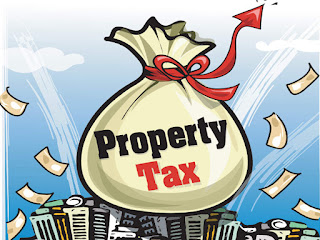CACOPHONY OF PROPERTY TAX
If some individuals are blaming the current government for the Property Tax, as articulated by the Honorable Prime Minister—please refrain from doing so. The Property Tax was enacted by the former Government and the 3rd Parliament. As someone who had a role in its legislation, I also take the responsibility for our decision.
Indeed, I am proud of our past decision. No one enjoys paying taxes, but we must consider their purpose. This necessitates deeper introspection, especially for those who value maintaining our nation's sovereignty, situated as it is between two global powers.
In a democratic setup, governments tend to avoid radical taxation measures akin to an infectious outbreak. Instead, they resort to offering incentives, tax breaks and waivers, and other appeasements to voters, often leading the country into an irreversible "debt trap". Thus, a prudent debt-servicing strategy involves generating revenue internally—paying taxes in proportion to income and assets.
What pride is there in receiving billions externally, albeit with strings attached, when some taxpayers find even a modest contribution burdensome? External borrowing, whether through loans or grants, always comes with "quid pro quo" conditions, the severity of which remains uncertain until the future unfolds, often too late to rectify.
Are we not ignoring the elephant in the room? Our national debt stands as high as Nu.280 billions.
Let us look at the Property Tax this way: Our nation represents a vast landmass to which all our taxable properties are connected. Therefore, each property tax payment directly bolsters national security. This perspective is vital for fostering a sense of civic duty.
Consequently, Property Tax holds symbolic significance, distinguishing itself from other taxes in terms of its direct impact.
Furthermore, if the objective is to bridge economic disparities aka "narrowing the gap," we viewed this as an opportunity. This year alone, an estimation of Nu.1 billion will be collected from Property Tax. Utilizing half of this amount (Nu.500 million) during the Druk Nyamrup Tshogpa's tenure enabled the construction of chain-link fencing for 205 Chiwogs, safeguarding vast tracts of land. With Nu.1 billion, this initiative will extend to 410 Chiwogs, thereby fostering food security—an essential aspect underscored by development economists.
Given Bhutan's challenging terrain with limited arable land, protecting what we have through chain-link fencing guarantees sustainable agriculture. Notably, in 2023 alone, rice imports surged to Nu 751.71 million from Nu 677.19 million, a trend projected to continue if proactive measures are not taken.
Therefore, I firmly believe that Property Tax is justifiable in the present context.
There may be a few issues in the implementation parts to which I am sure the government in power will revisit and do the necessary. There is "no one size fits all" laws, but some desired changes can always be made for those unjustifiably burdened due to anomalies in rural and urban identification of properties.
Finally, with PENJOR boosted by the ambitious "Economic" vision of BETTER DRUKYUL outlined by the PDP, by next year, tax payers will have no issue of whatsoever payment, be it property or any other taxes. If tax compliance remains a challenge thereafter, then it signals a deviation from the Economic Vision of the government.
Anyway, let us remain optimistic for a prosperous future!



Comments
Post a Comment